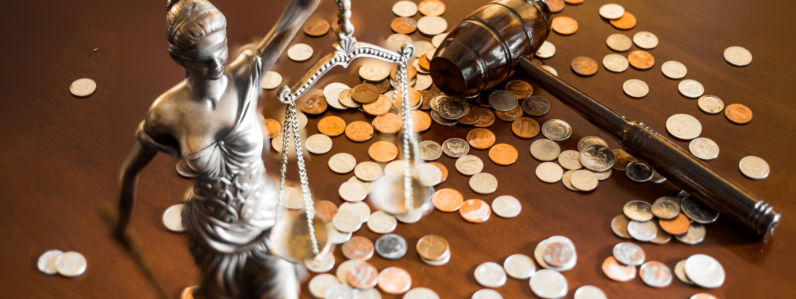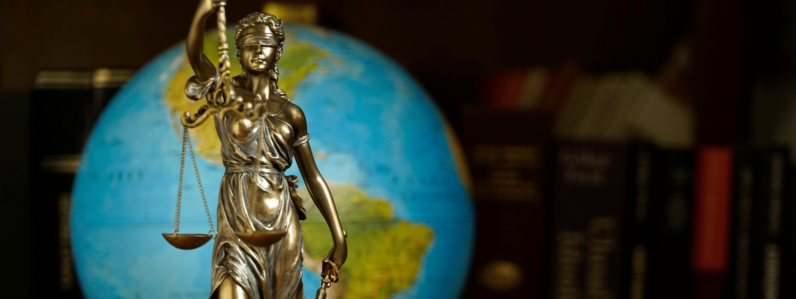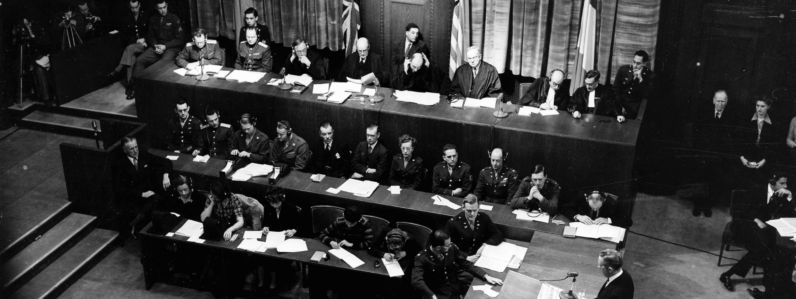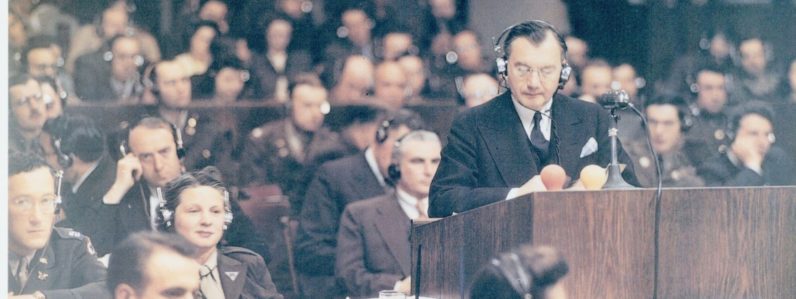I am going to discuss some aspects of statecraft under our written Constitution. I think that an attachment to the institutions of this country will be much stronger if it is based on a knowledge of the practical operation of the government.
This is an important and a much-neglected subject. If young men who have the advantages that are open to them do not acquire a mastery of the function of government, to whom will it be left to make important decisions of policy? No small part of our future will depend on the kind of government that we have in the next twenty years. We cannot expect individually to have opportunities much greater than those which are extended by the kind of society which the average American citizen enjoys.
That society is undergoing constant change, and our interests in that society need steady attention. It does not operate itself, and youth is soon coming to the time when it will be expected to do its share to keep it going.
The institutions which we inherit are unusual because they represent a somewhat experimental combination of elements, many of which have been tried before outside of the combination. But we have united several kinds of machinery into an unusually complicated system of government.
No citizenship in the world today imposes upon its members a burden of watchfulness and understanding greater than does citizenship of the United States, because, compared with our institutions, the systems of other nations are easy to understand. We have what I may describe, perhaps, as a federated representative democracy. At the base of all our institutions is the concept of popular control of government, which is the essence of democracy. But the democracy that is most direct is confined, of course, to small units, such as the town meeting. Aristotle thought that fifty thousand, perhaps, marked the limit of the population that could really be united under democratic institutions. But we have united under such institutions a nation of 130,000,000 people spread over half a continent. You can see that there must have been some invention which made it possible to expand democracy far beyond the concept of those who dealt with it in ancient times.
That invention, of course, was representation: the principle by which the people, though not able in the mass to pass upon policies of government, send representatives to do so and thereby extend the space and increase the population over which democratic institutions may flourish. The mastery of the art of representation may be said to constitute the material of politics as practiced in the United States. There has always been a sharp difference of opinion as to what one chosen to be a representative is supposed to do. One theory is that he is merely to register faithfully the wishes of his constituents, whether or not he agrees with them. Then there is the contrary opinion: that he is chosen to exercise his wisdom as well as his vote and that he bears a responsibility for the policies that he supports which he cannot cast off onto his constituents. But, on whichever principle representatives may act, the device of representation is the most fundamental of the principles by which the area of democratic government has been expanded.
We in this country found it necessary to utilize an additional principle: that of federation. This, in addition to the concept of democracy and the concept of representation, is what makes our government so seriously complex. We had the thirteen separate colonies. Their interests were not alike; their people had different origins and histories. In order to unite in forming a single government that would take care of their common concerns without surrendering their local individualities, they resorted to this device of federation. Difference of opinion as to the character of our federation accounts for a great deal of the difference between political parties throughout American history and for our Civil War and for a great many of the litigations that get to the Supreme Court.
Observe this American application of the doctrine of federation as it was worked out by the Constitutional Convention. First of all, we retained the state. We retained the state that it might be sovereign over all those concerns which were ordinarily regarded as local. We kept the state to exercise all the powers that were not specifically delegated. The state, in our concept, is not like a province in France or a shire in England—something created by and owing its existence to the central government—but it is a government in itself. Over these several separate state governments we built a covering central government, and we delegated to it affairs that were of common concern, such as regulation of interstate commerce, the conduct of foreign affairs and making of treaties, the maintenance of the army and navy, the control of bankruptcy, of coinage, and of the public domain.
To give this arrangement of powers as much stability and continuity as possible, our forefathers adopted a written constitution which cannot be easily or quickly amended, and in so doing they broke sharply with tradition in other countries. Our original written Constitution contains only about 4500 words, and I suppose there have been 4500 volumes written to explain various views as to what those 4500 words mean. And I do not think the mass of books about the Constitution have much clarified its meaning.
The Constitution makes use of yet another principle which adds to the complication of government, and that is the doctrine of separation of powers. The forefathers did not think that one man or one group of men should make the law and also decide whether someone had violated that law and prescribe punishment. So they separated law making from law interpreting, and both from the executive functions, and created “checks and balances” which constitute a very important and troublesome part of our mechanism. The President can veto the legislation of Congress. That is one of the checks.
But the Congress, by a sufficient vote, can override his veto. The President can appoint such officers, for example, as members of his cabinet and judges of the courts, but the Senate may refuse to confirm them. Revenue bills must originate in the House of Representatives, but treaties with foreign states can be ratified only by the Senate. The President is the commander in chief of the army, but he has to go to Congress in order to get the appropriations to carry out his operations. So you see the matter of checks and balances to prevent abuse of power always presents a very delicate problem.
There were some things that the forefathers thought no government ought to do, so they specified certain activities and prohibited the government from engaging in those things. That specification of activities that cannot be touched by the central government constitutes our Bill of Rights—the Bill of Rights which can be invoked when civil liberties are invaded. Originally, these limitations were applied only to the central government, but of late years, mainly by the force of the Fourteenth Amendment, they are applied to the states as well. So we now have a certain area of policy in which neither state nor federal government can legislate.
Our Constitution departs in another respect from the traditions of the past. It makes most questions as to whether the government is acting within its powers legal rather than political. Such matters constitute a large part of the work of the Supreme Court. It frequently determines disputes as to whether officers of the government are acting within the scope of their powers. It also makes the controversies that arise between the states matters to be settled by adjudication and not by diplomatic controversy or by war. Litigation may also determine rights of the state against the federal government and, of course, the citizen may sue the officers of the federal government or officers of the state government, charging that they are acting beyond their powers.
This was an important break with the kind of government the world had seen before, in which there were no written constitutions and the officers in charge of the government really made up their own minds as to what their powers would be. But the combination of all of these safeguards has given us a very complicated government. If you doubt it, try to explain it to an intelligent foreigner, and you will then learn whether you understand it yourself.
The United States offered the perplexing and novel example of two governments functioning at the same time and within the same territory. One would find it fairly easy to live under one government today and another tomorrow because he would need to obey only one at any particular time. Also, it is not difficult to keep one’s rights fairly straight when he passes from one government to another over some border line marked by a mountain range or a river or monuments. But, under our peculiar system, our federal and state governments are separated only by a sort of philosophical line which is drawn by the courts, and the lawyers have a great deal of disagreement about where it is. The citizen, however, is supposed to know and to obey the law! The only people who are entitled to be wrong about it are the lawyers and judges.
To live under two governments occupying the same space at the same time is not as simple as one might think. The result is two citizenships. Every man born in the United States is by virtue of that fact a citizen of the United States, and he is also a citizen of the state in which he resides. We thus owe allegiance to two governments at once. The result is that we might be called to serve, for example, on a jury in obedience to our obligation to the state of which we are citizens. The next day a man might be called into the army, and he would be obliged to go in obedience to a duty of citizenship of the federal government. Two citizenships also result in a little matter of some vexation: two sets of taxes, one of which is paid to the state government because of state citizenship or because income is derived from within the state, and the other to the federal government.
Each citizen also has rights that spring from two sources. In ordinary local concerns, such as making a will or drawing a deed to convey real property or making a contract, the state law governs. But, if you were to engage in interstate commerce or foreign trade, you get into the jurisdiction of the federal government, perhaps without changing your own location at all.
Some of the complications which result from this dual citizenship and this duplication of obligations and rights are very interesting and in fact unique.
Let us take two men who are neighbors. One is employed by the Pennsylvania Railroad, let us say, which is a carrier in interstate commerce. The other is employed by a building contractor. Both workmen suffer similar accidents and sustain the same kind of disability as a result. One of them cannot get workmen’s compensation under the laws of the state because he is engaged in interstate commerce. His remedy is to bring suit against his employer and take his case to a jury, while the other workman cannot bring suit against his employer at all but must receive compensation under state law. It is very difficult for the two men who live next door to each other to understand this great difference between their rights, because it is hard for them to realize that each really pursues his occupation under a different government.
Let us take forgery as another example. One young man forges his father’s name to a check on a local bank. It is an offense under the laws of the state, and he is brought to trial in the state court. The other forges his father’s endorsement on a federal salary check or some other check of the government. That is a federal offense, and he will be tried in federal court. Although the two offenses from a moral point of view are exactly the same, the punishments may be very different.
Another illustration may be made of stealing an automobile for the purpose commonly known as joy riding. If you should steal a car in Newark and drive to Trenton, you would be subject to punishment in the courts of the state; but, if you drove to Philadelphia, you would be subject to punishment in the courts of the nation. You would come in contact with an entirely different set of laws; your rights would be defined differently; you would come before a different set of judges; you would serve your sentence in a different prison; and, if you ever sought a pardon, you would have to seek it from the President, in one case, and from the Governor of New Jersey in the other.
That is a difficult thing for the average layman to understand, and it is important that young men who are coming into positions of leadership in the country should understand why these things are as they are, because they are matters of daily life.
Consider my own day today as an illustration of the way our federated system of government complicates our legal rights. I left Virginia this morning, where my house, its title and insurance and the like, are subject to the rules of that state, in a car that the state licenses and gives me permission to drive, and if I had suffered an accident, I would have been subject to the laws of that state.
In twenty minutes, however, I was in the District of Columbia, subject to the District of Columbia Code enacted by Congress for the government of the nation’s capital. And then in a few more minutes I was on a train where my rights as a passenger were regulated solely by the federal government, no state having anything to say about it, because I was traveling in interstate commerce. Then I arrived at Trenton, and I came here in a private car. If the driver had violated the speed law, it would have been an offense under the laws of New Jersey, and I might have been an accomplice. If he had not been a careful driver and the trip had resulted in injury to me, whether as his guest I could recover damages from him would depend entirely on the laws of New Jersey. At the moment, I am exercising the right of free speech, which no state nor the federal government can abridge. So, you see, in a short space of time we may become subject to the laws of many jurisdictions. If a citizen is intelligent in the discharge of his duties, he must devote some time to the historical background and the meaning of these different institutions which affect his welfare.
The running of this complicated machinery is what we may call statecraft, and statecraft in America is very different from that in some countries where there is only one governmental authority. In this country statesmen must not only decide a policy toward problems that are troubling the country, but they have equal difficulty determining whether it is the states or the federal government that can legally, as well as effectively, carry out that policy.
Now, this whole system is ultimately responsive to public opinion. The governments of the nation and of the states and of the municipalities must all depend for support on the convictions in the hearts of people. I sometimes think government is like a sailboat: It is not self-propelled on a direct course, but it is driven along by the breezes of public opinion. It tacks and maneuvers, and only average trends over a considerable time reveal its true course. It is most unfortunate when an administration is becalmed by public indifference. I doubt if any mistake of policy is as dangerous to good government as an indifferent citizenry. That is the beginning of corruption and perversion of public power to serve private ends.
The public opinion which moves government, however, is not the abstract opinion that is measured by polls. Even if it is true that masses of people adhere to a particular opinion, they may or may not be an effective influence on government. Effective public opinion is not the opinion that you may happen to hear in a drawing room or on a campus or in a forum.
We cannot help noticing the difference in the intensity with which people hold their opinions. It is often clear in matters of religion that some persons are very intense in their opinions, and deep convictions shape their daily lives. Yet there are others who have the same affiliations and who have made the same profession but who carry their convictions lightly. Persons differ in politics in the same way. Some men are intensely zealous for party, for a cause, or for a leader. It is impossible to determine what public opinion is effective for the purpose of influencing government unless we can get some measure of the intensity of conviction so that we can know how much people will really sacrifice for their opinions. Attitudes that are very vocal may not mean much unless those who hold them follow through.
Then, too, effectiveness often depends on organization as a means of expression. An opinion which can get a political party to back it has a great deal better chance of acceptance than perhaps a better opinion which does not get a political party to support it.
And then, to determine effectiveness we have to reckon with any type of disfranchisement. We must allow for the effect of poll taxes to the extent that they may deprive people in arrears from voting. In New York State we used to say that a stormy election day was an indication that the Democrats would win because most Republicans lived upstate and had to travel a long way to get to the polls, and if it was a stormy day many of them stayed at home. It is not a very satisfactory thing that the policies of a state might depend on the accident of a snow storm on election day. But these are some of the things that have to be reckoned with in making public opinion bear effectively on government. When all of these factors are summed up in the device of election, we get the public opinion that is controlling under our Constitution. That is the chief weapon of modern statesmanship.
There are some strange things about public opinion in the United States and its influence on our government. President Wilson during his first administration once was urged to postpone until his next administration his demand for certain legislation. He answered, “I may not have a next administration.” He said, “Do you know that the history of the United States shows that in only about four years out of twelve are there liberal administrations?” That story led me to look at our history to discover the oscillation of trends in public opinion. It would be interesting to study in connection with American history what appears as a sort of rhythm of public opinion. Rising and receding almost like the movement of the tides are the impulses toward reform and then toward what we might call repose—a vigorous, forward-looking, active policy followed by a period of reaction.
The year 1776 represents, perhaps, the high point in the uncompromising assertion of the rights of man. The Constitution was a more sober expression of those rights than the Declaration, and reaction continued until, in 1800, with the election of Jefferson, there was a resurgence of the reform spirit. After his administration, reaction gained until 1828 witnessed another wave of reform in the election of Jackson. After the storm there was calm again until 1860, when an awakened social conscience brought about the election of Lincoln. After the war came a period of reaction until 1884 witnessed the election of Cleveland on a platform sharply reformist. Then reaction again, followed by Theodore Roosevelt. Shortly after him came Wilson, so close together that I think they represented part of the same movement. Then policies became very reactionary again until 1932, when President Roosevelt was elected.
It is interesting to note that from the Declaration of Independence to the election of Jefferson was a twenty-four-year period; then twenty-eight years elapsed to the election of Jackson, and thirty-two years more to the election of Lincoln. Then there were twenty-four to the election of Cleveland, and twenty to the election of Theodore Roosevelt; and twenty separated the administration of President Wilson and President Franklin D. Roosevelt. This rhythm, the laws of which I do not pretend to know, suggests that political fate, if you attempt any personal venture into statecraft, may depend on timing. If you are a liberal in a period of reaction, you may at best meet the fate of a Bryan or a Tilden. You may speak powerfully, but you will not hold office. If, on the other hand, you happen to be a conservative during the administration of a Roosevelt, well—you will have the privilege of expressing your views. You will be like the conservatives Henry Clay and Webster when they were battling against the tides of Jackson’s liberalism.
Between the best opinion of the country and legislation, there is a serious lag. It is often difficult for men, especially young men who see clearly that reform is needed, to see equally clearly why there should be such a lag. We know today, for example, that our criminal procedures are amazingly bad. We know, too, that our system of taxation is exceedingly unscientific and full of duplications and discriminations. Many illustrations could be giving of the wide gap which separates the best informed opinion from the average level which government reflects. This lag is a source of disappointment and discouragement to many people.
Since public sentiment is so important to our form of government, it is quite natural to find that some steps were taken to protect the processes by which public opinion forms. It is important to think of certain privileges guaranteed in the Bill of Rights as devices for the protection of free government as well as for the protection of individuals. Consider the privilege of assembly. I do not suppose that it was the idea of the men who framed the Constitution that every meeting would be worthwhile or even harmless. They appreciated fully that some pretty worthless people would hold meetings and for some pretty questionable purposes. I am sure they did not think that all of the speeches that might be made under the privilege of free speech would be worth listening to. I don't suppose they for a moment doubted that free speech, free press, and free assembly would put into circulation a great many vicious sentiments and much false news. But, except by free speech, by free assembly, and by free press, there is no way by which a democratic people can get the news, the information, the facts upon which to exercise their judgment as to policies of government. Those are the methods of exposing errors and of formulating the collective opinion.
I quote again from President Wilson. He said:
I have always been among those who believed that the greatest freedom of speech was the greatest safety, because if a man is a fool, the best thing to do is to encourage him to advertise the fact by speaking. It cannot be so easily discovered if you allow him to remain silent and look wise, but if you let him speak, the secret is out and the world knows that he is a fool.
So I say that these great privileges which are being denied in so many parts of the world—the privilege to speak freely, though you speak falsely; the privilege to print, though you print what is untrue; and the privilege to assemble, though you assemble for no good purpose—those privileges, even with their abuses, are essential to formation of public opinion and the processes of democracy. Those are the ways in which we take opinions to market and put them in competition where the true may be separated from the false.
We who take popular control of government for granted may test the power of public opinion most dramatically by the experience of governments more absolute than our own. Public opinion, a little more slowly, perhaps, but none the less certainly, controls the fate of dictators and often governs their policies. If you have the concept of a dictator as one whose absolute will or caprice rules a nation, I think you have the wrong idea. Hitler and Mussolini can fall by the force of adverse public opinion at home, not so quickly as an administration in the United States or in England, but just as inevitably. If that were not true, they would not make such frantic efforts to control public opinion.
When a dictatorship establishes a huge propaganda machine, it is really paying great tribute to the power of public opinion. Dictators know that if popular support gets away from them their game is over. Why do they seek to control the schools, the press, the pulpit, the mails, and all avenues of communication? The censorship of communications, the suppression of newspapers, the concentration camp for preachers who speak out in meeting and for men who express their views are all creatures of fear, lest if public opinion form freely it form adversely.
These foreign experiments which attempt suppression I think will show clearly the wisdom of our forefathers in providing that the government must keep its hands off the process of opinion-making by the American citizenship.
I suppose no man in the history of the world to his time had a more effective censorship than Kaiser Wilhelm II. It was not merely a censorship of military information; it was also a censorship of political opinion, coupled with a propaganda machine. It was operated by the army, and operated ruthlessly. Yet in spite of its efforts, the crack-up of his regime came from public opinion. When doubts and queries and criticisms undermined his support among the masses of the people, he was not only disabled from carrying on, but he soon took to his heels for his own safety. I know of no better demonstration of the fact that public opinion cannot be controlled by censorship than the failure of suppression in that instance.
We know today that speeches made by the President of the United States and the Prime Minister of Great Britain do reach into occupied territory abroad and into the German and Italian homelands in spite of the most rigid censorship. How do we know that? Because those governments take pains to answer these speeches within twenty-four hours, and they are too intelligent and economical to try to counteract words that none of their subjects has heard. And we know, too, that forces of public opinion are at work, or the German Minister of Propaganda never would issue the documents in which he predicts to the people dire consequences if they lose the war. The shift from the lure of promise to the drive of fear reveals that German opinion no longer holds its leaders' promise to be good.
Propaganda of fright is the last card. These events are tributes to the force and power of public opinion, a force and power which dictators try to circumvent, but not successfully, and which democratic statesmen wisely conclude is to be respected as the real motive power of modern government.
Statecraft in America is youth's for the taking. There is no reason why they should delay a single day in contributing their part to public opinion. The thought of the campus is an important part of the greater public opinion of the nation. All of the weapons with which to inform and persuade men are at hand to use. After all, the practice of politics in a free country is the art of persuading other men to trust you and your judgment. I am not urging young men to become politicians. Yet I think one of the most wholesome signs of our times is that young people are taking a long view of and a critical interest in every step taken by their government. The measures that are taken now may have a controlling influence on the kind of world in which we must live in 1950 or 1955 or 1960, when those now entering manhood will be at the height of their powers. You need not wait to be in office in order to have influence over public opinion. The influence of those who are in office often suffers because they are under the greatest suspicion of self-interest.
You do not need to be in the majority. If you are in a minority, you have the right to seek to convert others to your own convictions and thereby win a majority to your view. If you are in the majority and do not like what is said about it by others, you have the weapon of free speech with which to answer. You need not wait for the whole world as an audience or for a nationwide hookup. All that you need is an interest in public affairs, a zeal for the public interest, and the courage of your convictions to be a statesman in your own circle; and that circle can expand indefinitely as your experience and capacity and reputation grow.







